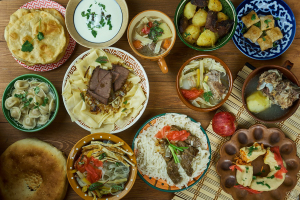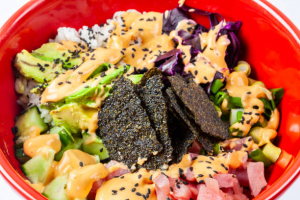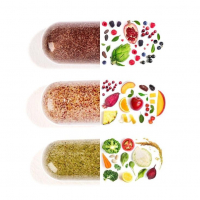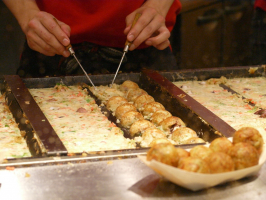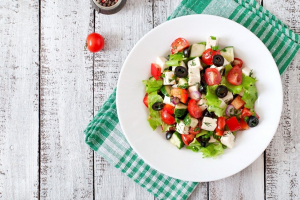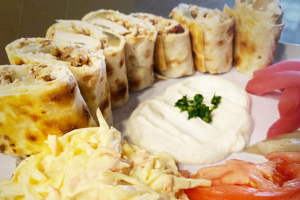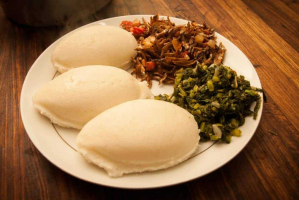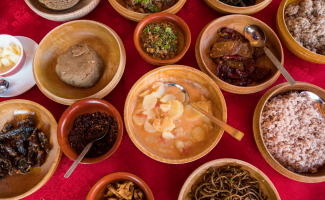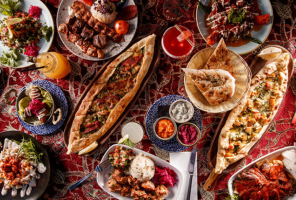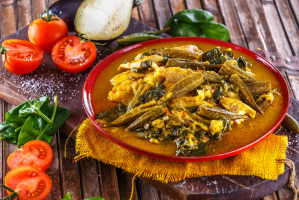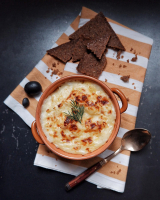Top 10 Best Guatemalan Foods
Traditional Guatemalan cuisine is said to be based on Mayan cuisine with Spanish influences. Beans, chilies, and corn are prominently featured in dishes, as ... read more...are a wide variety of agricultural products due to the country's tropical setting, fertile volcanic soil, high rainfall, and warm temperatures. If you're planning a trip to Guatemala and want to get a taste of the local cuisine, Toplist hopes our list of the Top 10 greatest Guatemalan cuisines will point you in the right direction.
-
Tostadas Guatemaltecas, also known as Guatemalan tostadas, are snacks made from deep-fried or oven-toasted corn tortillas. They're frequently served as a quick snack or appetizer before lunch or during holiday celebrations with family. In Guatemala, they're also popular as street food.
Tostadas can be topped with a variety of ingredients, but traditional Guatemalan tostadas typically include guacamole, tomato salsa, or refried black beans. Other ingredients may include onions, sweet peppers, chopped meat, adobo seasoning, herbs, and spices to give the tostadas a flavor boost. If you intend to travel to Guatemala, this meal is one of the must-try dishes.
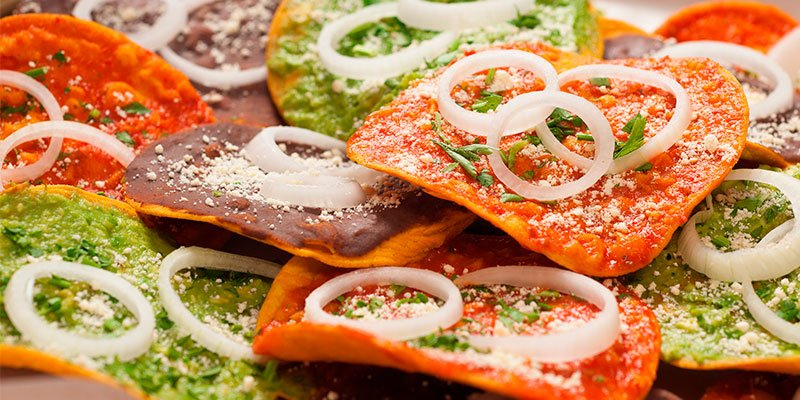
aprende.guatemala.com 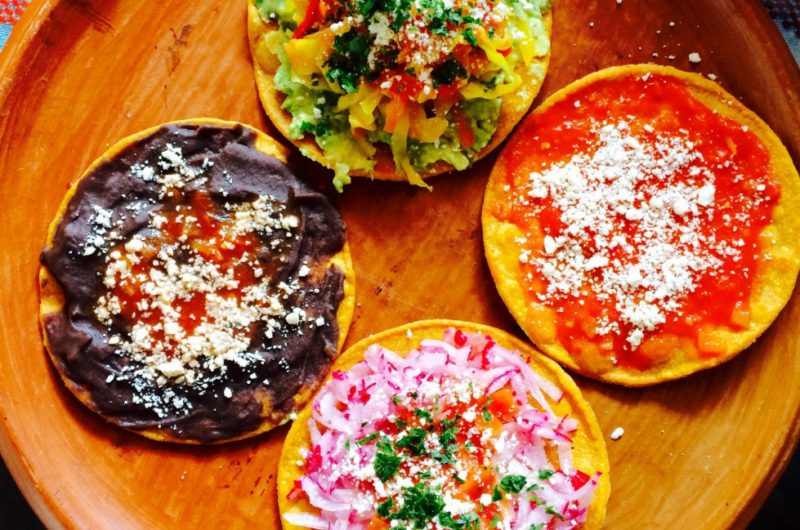
guatemalanfoods.com -
Tamales are an ancient Mesoamerican dish dating back to 8,000 to 5,000 B.C. They're made with corn masa or rice flour and steamed in fresh plantain leaves (or corn husks) to add flavor and aroma. They can be stuffed with any combination of meats, cheeses, fruits, corn, tomatoes, bell peppers, roasted chilies, or other ingredients.
While tamales are popular in many Latin American countries, including Mexico, Belize, Peru, Bolivia, and the Dominican Republic, Guatemala has four distinct varieties: tamale colorado (red tamales), tamale negro, chuchito, and tamalito. The most popular of the four is the tamal colorado. Many Guatemalans typically eat them every Saturday. They are made with a dark red savory sauce, green olives, and meat, which is usually chicken or pork.
Tamales negros are Christmas tamales made with a sweet mole sauce, raisins, and meats such as turkey, chicken, or pork. Chuchitos are wrapped in corn husks and made with thicker masa. They're a popular Guatemalan street food that's filled with a simple tomato sauce and chicken. Finally, tamalitos are small tamales that are frequently served with meals. They're eaten like bread and used to dip into soups and salads.
Guatemalan tamales come in a variety of sizes, with the larger ones containing more ingredients that could be enough for a full meal. Tamales recipes may use simple ingredients, but the dish itself is labor-intensive to prepare, and it may take the majority of the day to complete.
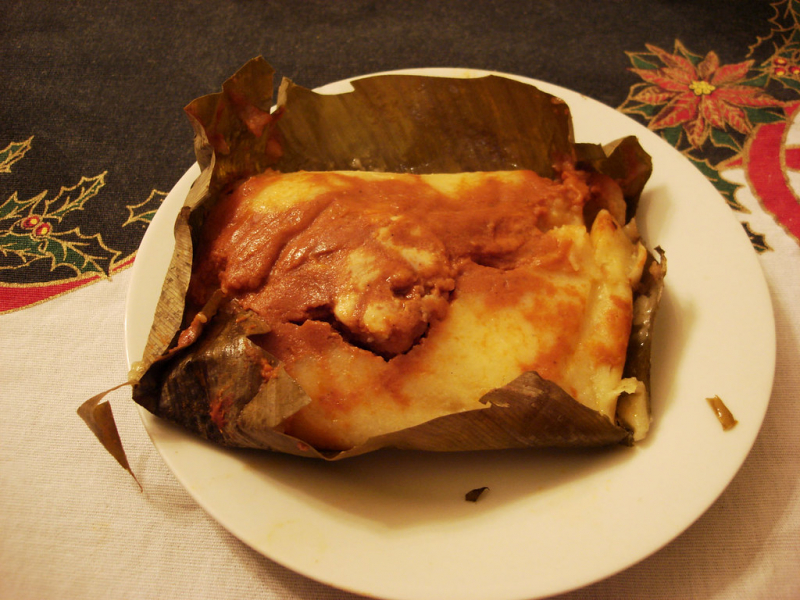
flickr.com 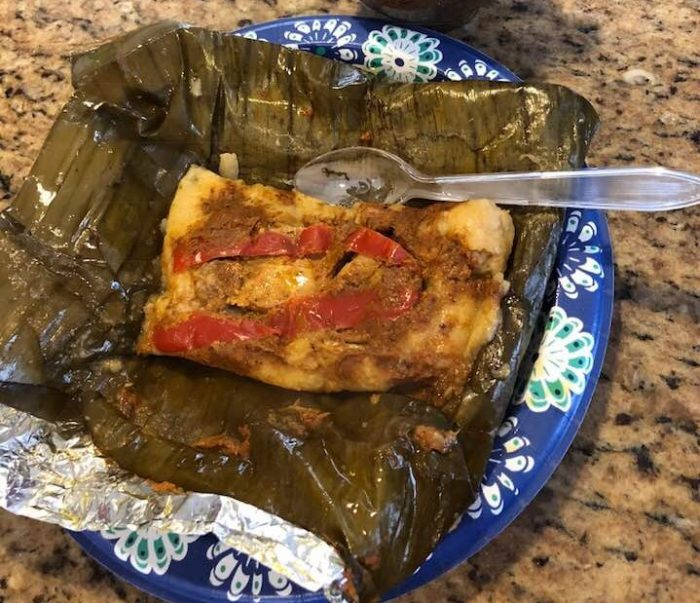
familiakitchen.com -
If each country has a soup dish that represents its culture and cuisine, Guatemala has Caldo de Res. This beef broth, known as cocido or "cooked" in Antigua, is one of Guatemala's most popular dishes. As a result, it's a common item on the menus of Guatemalan restaurants and other eateries.
Its origins can be traced back to a similar Andalucian dish called puchero, which was prepared during colonial times in Latin America and the Philippines. It has many names in countries where it is popular, and Guatemala has its own version called caldo de res.
This Guatemalan dish is made by first making a broth with the meat and bones, then adding the vegetables, which include carrots, corn, potatoes, and chayote squash. Finally, it's accompanied by rice, fresh corn tortillas, or avocado slices.
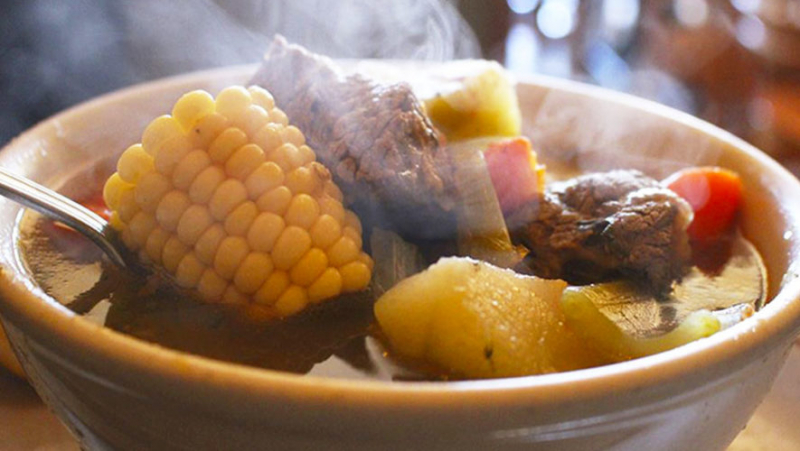
guatemala.com 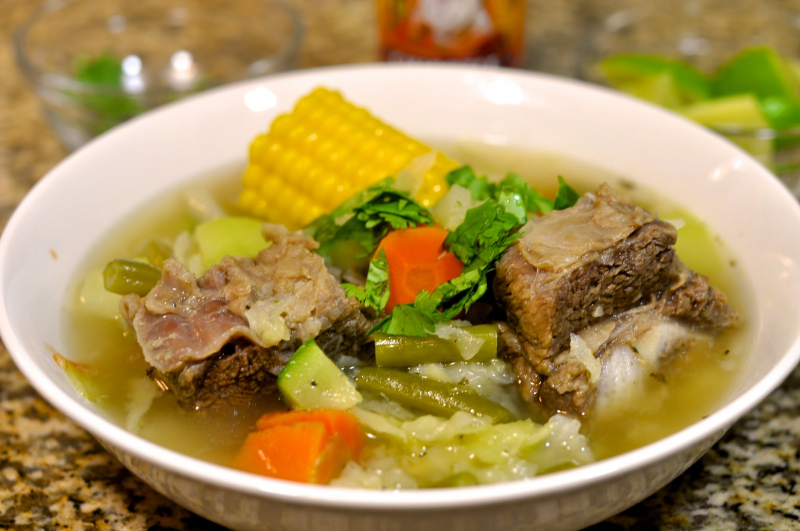
visitesanlucastoliman.wordpress.com -
Jocon de Pollo is one of Guatemala's most popular traditional chicken dishes. The generous handfuls of cilantro, scallions, mint, tomatillos, and green jalapeno chiles, also known as chicken in salsa verde in Mexico, really make this emerald green stew shine.
Jocon de Pollo is a recado, a meal style that is a cornerstone of traditional Guatemalan Mayan cuisine. A recado is usually a thick stew with a sauce. In Guatemala's highlands, it's frequently cooked over an open fire in an outdoor stove. While the smokiness of the fire adds a unique flavor to Guatemalan dishes, most urban cooks prepare their stews and soups (caldos) on the stove.
Guatemala's traditional soups and stews take full advantage of the fabulous fresh ingredients found in the country's outdoor markets, whether prepared over an open fire or on a stove top. Every day, vendors bring fresh seasonal vegetables, fruit, and herbs grown in the fertile valleys to the markets.
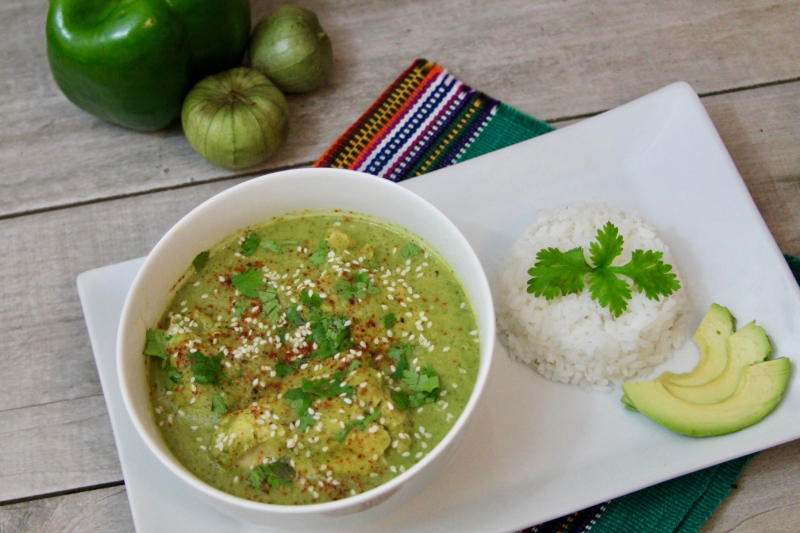
growingupbilingual.com 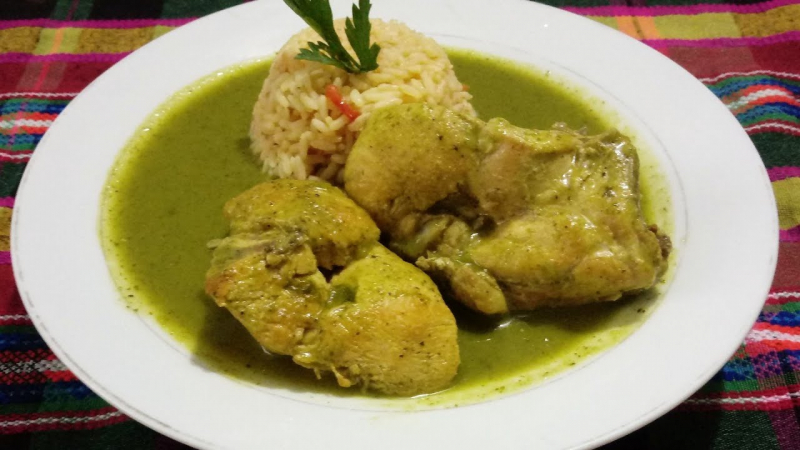
Photo: Rosalita Cocina y más's Youtube Channel -
Being recognized as one of Guatemala's national dishes is a huge accomplishment, earning pepian de indio its rightful place on this list. This chicken stew is also known as the "ultimate Guatemalan comfort food." It's difficult to argue with tender cuts of chicken cooked in a lightly spiced tomato sauce and mixed with toasted pumpkin seeds and chili sauce.
Its origins can be traced back to pre-colonial times, when the Mayans cultivated crops such as corn, beans, chilies, squash, and tomatoes, which served as the foundation of their cuisine. The pan-roasted pumpkin and sesame seeds, ground into a fine powder and mixed into the sauce to give it that smooth velvety texture, are the key to the delicious nutty flavor of pepian de indio. It's simply delectable. If you intend to travel to Guatemala, Pepian de Indio is one of the must-try dishes.
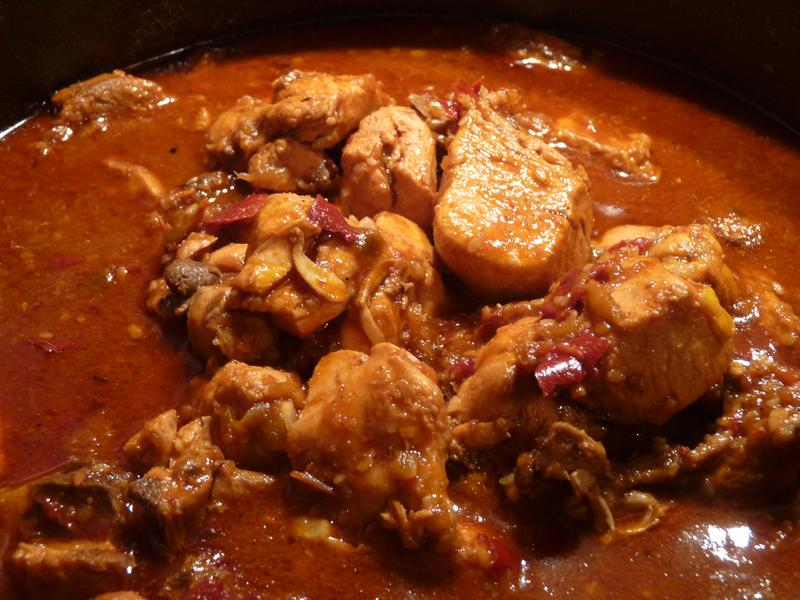
worldfood.guide 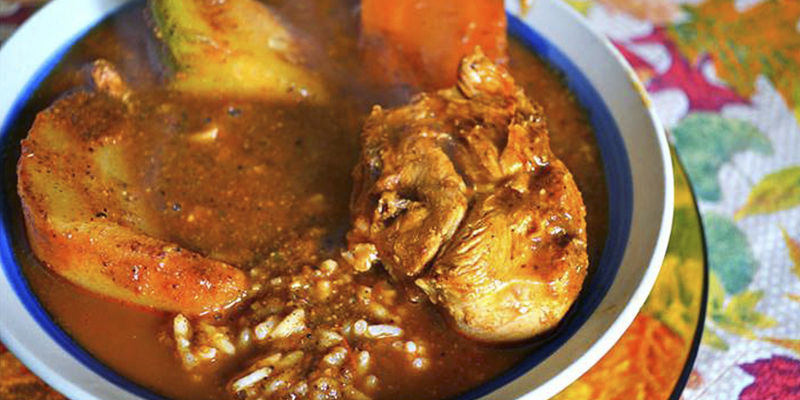
aprende.guatemala.com -
Kak'ik is one of Guatemala's most popular Mayan dishes, as well as one of the country's dishes of intangible cultural heritage. It's a turkey soup made with a lightly spiced red broth. The dish's name is derived from a Mayan Q'echi' tradition from pre-colonial times. This traditional Guatemalan turkey soup is made with native turkeys, tomatoes, cilantro, chilies, and achiote, which gives the soup its vibrant color.
Kak'ik is a Guatemalan stew that features a turkey leg as the main ingredient. Tomatoes, tomatillos, onions, bell peppers, and a variety of spices such as achiote, Cobanero chile peppers, and coriander are also included. In Cobán, where kak'ik originated, it can be found on almost every restaurant menu.
The word ik in the dish's name means spicy in Q'eqchi, and refers to the fiery Cobanero chiles. The stew is traditionally served with rice and steamed tamales wrapped in banana leaves. It's a good idea to top the dish with chopped mint leaves before serving.
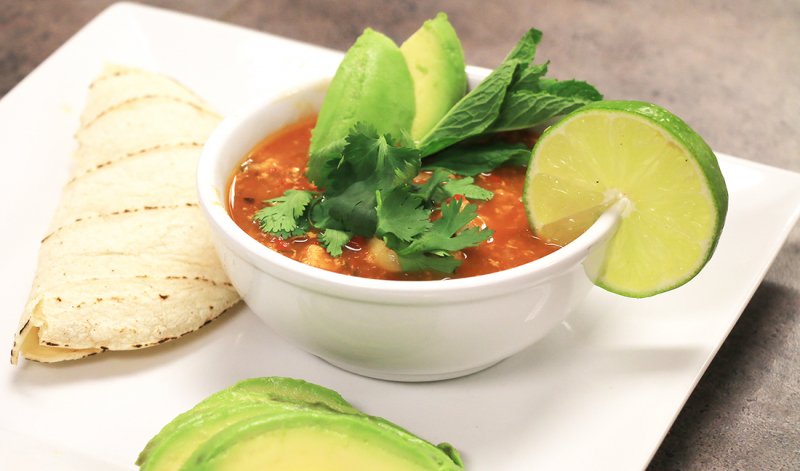
blog.fhcanada.org 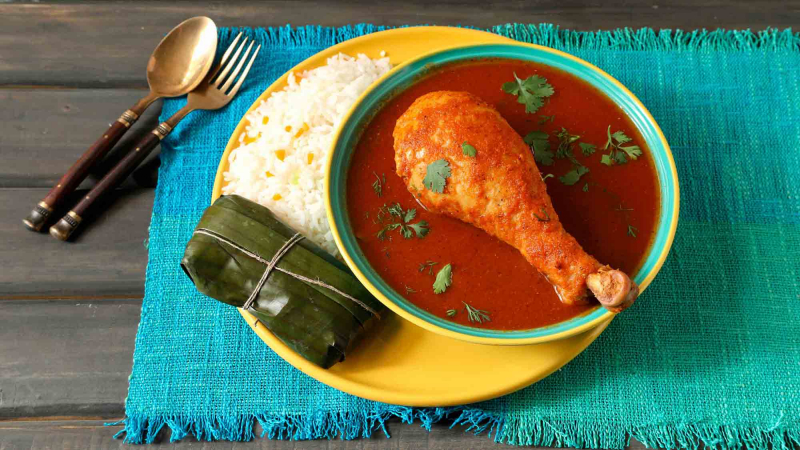
avianca.com -
Spain's nearly 300-year colonial rule (1540-1821) had a massive influence on the country, particularly on its cuisine. Hilachas, or the Guatemalan version of shredded beef stew, is one of its delectable gifts, with shredded beef simmered in a lightly spiced velvety sauce with tender potato cuts. Hilachas literally translates to "threads," which describes the appearance of the beef, which has been shredded into thin strips.
Hilachas, which have their origins in colonial Spain, are very similar to the Cuban dish ropa vieja. Ropa vieja, which is also made of shredded beef and vegetables, looks like a pile of colorful rags, which is where the translation "old clothes" comes from.
Hilachas, like most traditional Guatemalan dishes, has evolved to include popular variations such as carrots, chayote squash, cloves, cinnamon, fresh green beans, and tomatillos. If you intend to travel to Guatemala, this meal is one of the must-try dishes.
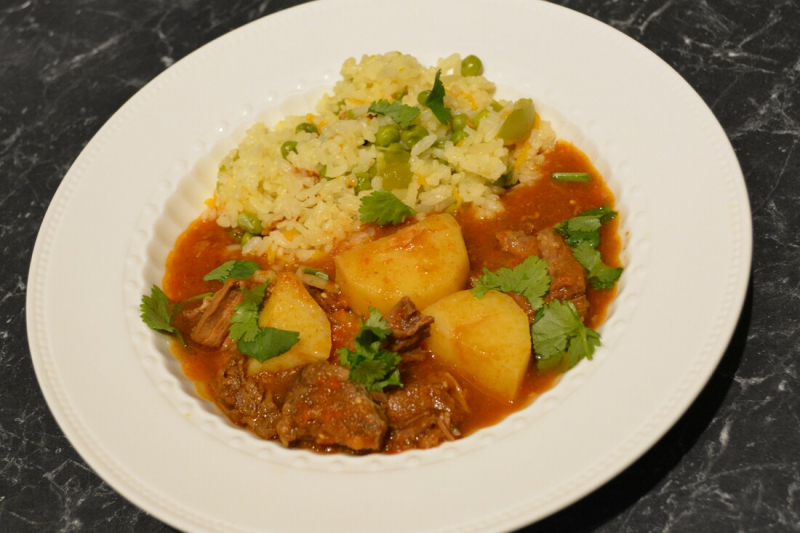
whatscookingella.com 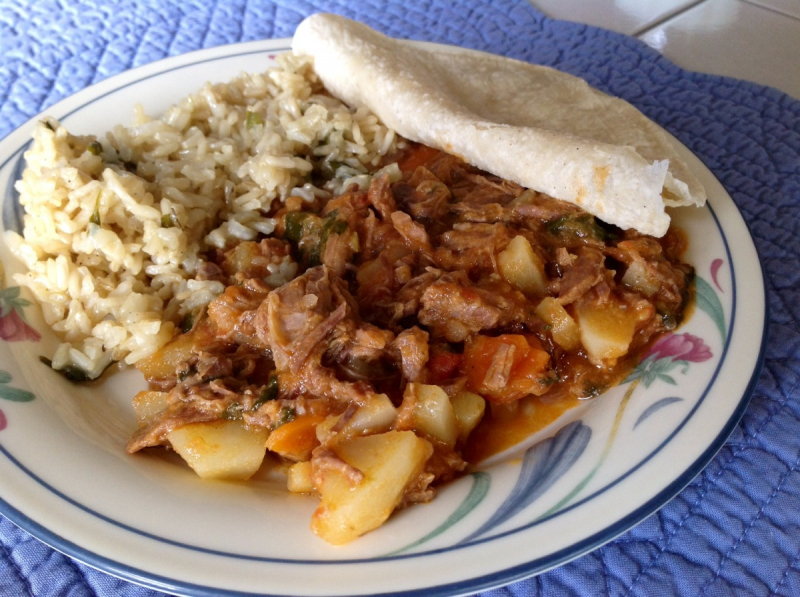
food.com -
Fiambre is a dish that is served during a specific holiday in Guatemala. Fiambre is a unique salad prepared and consumed yearly for All Saints Day (Dia de Todos Santos) and the Day of the Dead. It is widely regarded as a Guatemalan national dish (Dia de los Muertos).
Fiambre was thought to have begun when families tending to the graves of their loved ones would bring food – usually what their loved ones enjoyed when they were still alive – and share a meal. They believe this will rekindle their bond with them. Because Guatemalans are known for their warmth and friendliness, they eventually share what they have with other neighboring families visiting their gravesite, resulting in fiambre.
Fiambre translates to "cold meat" or "cold cuts" in Spanish. It's a combination of various ingredients served cold on a large plate. A fiambre recipe includes an assortment of meats, cheeses, pickled relishes, and vegetables, with an average of forty ingredients, making it the mother of all salads.
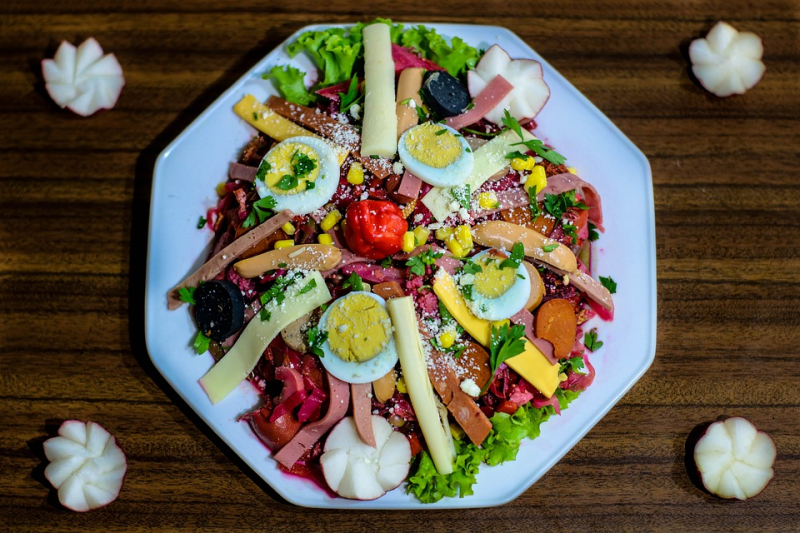
pixabay.com 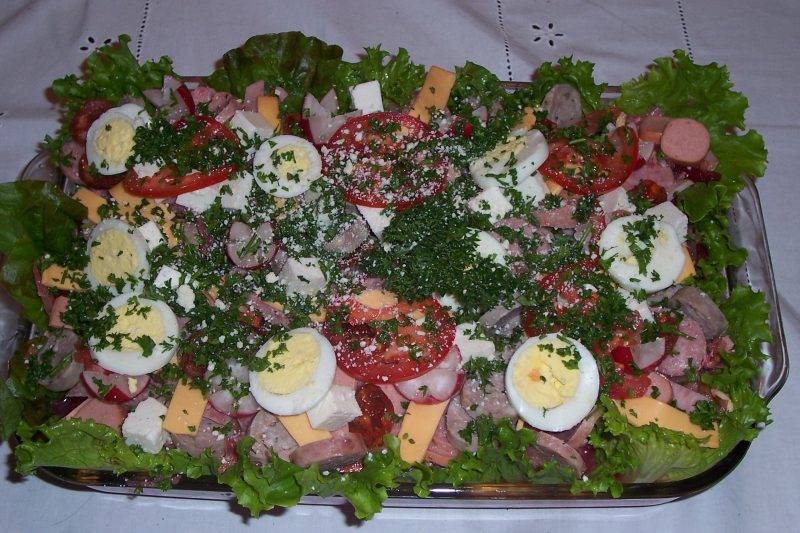
en.wikipedia.org -
Because Guatemala is the birthplace of chocolate, you've probably been hoping for a chocolate dish to be included in this guide to Guatemalan cuisine. This is where the Mole de Platano makes its grand entrance. Mole de platano is a traditional Guatemalan dessert that is ideal for chocolate connoisseurs. It's made with mole, a chocolate sauce, fried plantains, cinnamon, chili, and bell peppers sprinkled with sesame seeds.
The dish is so important to Guatemala's culinary heritage that the Guatemalan Ministry of Culture and Sport designated it as Intangible Cultural Heritage in 2007. Guatemala, as previously stated, is regarded as the birthplace of chocolate. The cacao tree and its beans were so revered by the ancient Mayans that they referred to them as "food of the gods." Ixcacao was the chocolate goddess, and she was frequently summoned to provide bountiful harvests.
Chocolate was mostly consumed as a bitter and spicy drink during the Mayan era. They would grind the cacao beans by hand and combine them with water, vanilla, honey, corn, and chili to make the dish. Chocolate was traditionally considered a valuable commodity that could be used as an aphrodisiac as well as a form of currency.
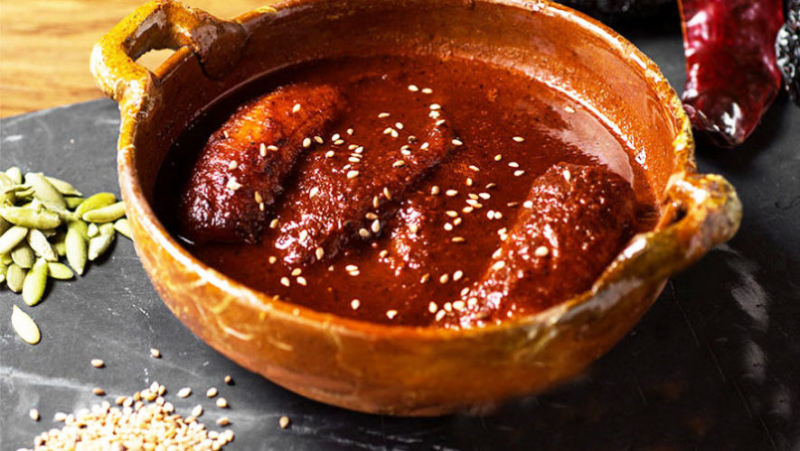
guatemala.com 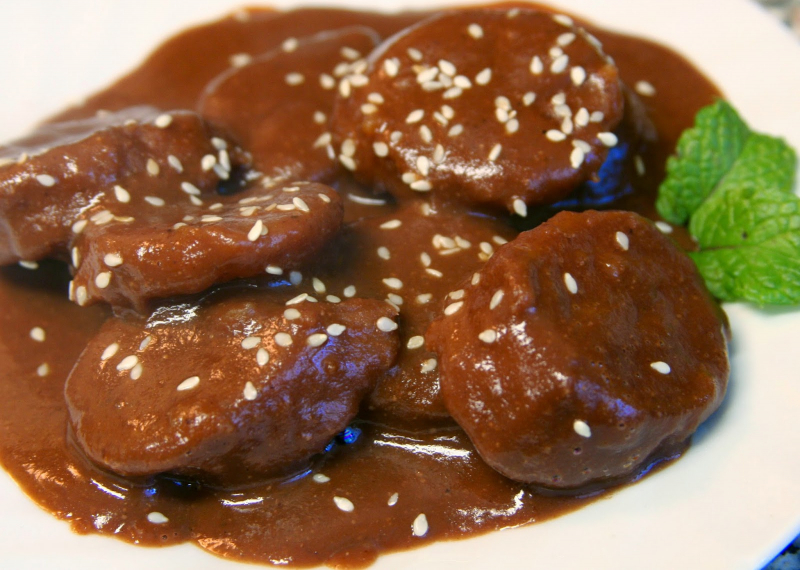
perotengohambre.blogspot.com -
Atol de elote is a sweet and creamy corn drink that is widely available in supermarkets. Atol de elote, which is served warm and often seasoned with cinnamon or vanilla, tastes similar to arroz con leche and could be described as a cross between horchata and corn chowder.
Atole de elote is a warm, thick, and sweet drink made from corn kernels, cinnamon, and milk. The recipe varies slightly from country to country, but it is basically made by grinding the corn kernels and using the paste to thicken some liquid, which could be only water, milk, or a combination of the two. This corn atole is ideal for breakfast or as a snack, and it also goes well with tamales.
Traditionally, the silky rich texture is achieved by grinding corn with a grinding stone or metate. Milk, sugar, and spices are combined in a large pot before the sweet concoction is heated and served in cups. Other ingredients such as cinnamon, vanilla, star anise, chocolate, and piloncillo may be added to some recipes (cane sugar).
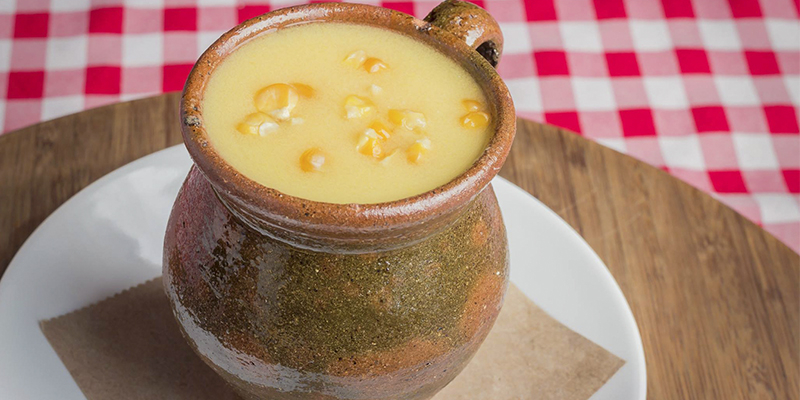
aprende.guatemala.com 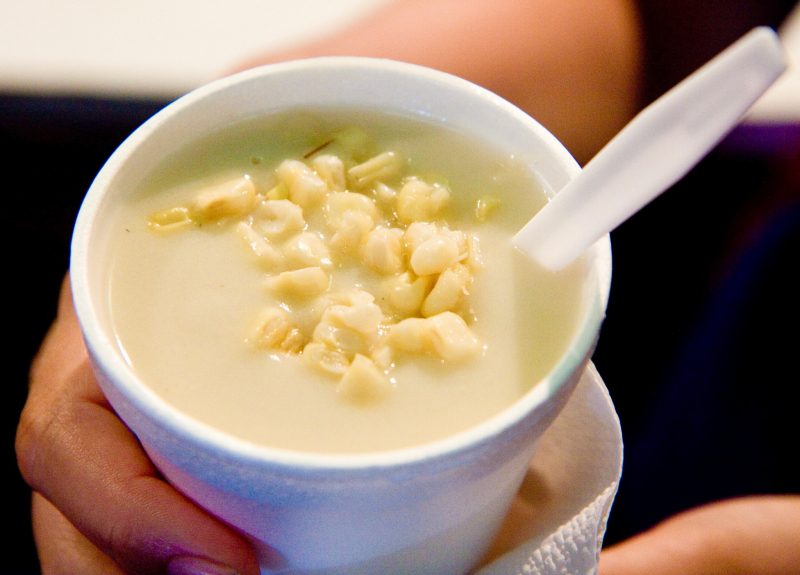
growingupbilingual.com













